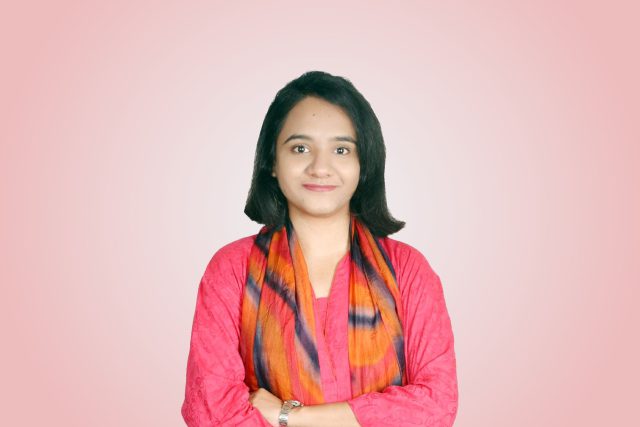Nishat Jarin
Climate Activist
Climate Change Professionals Group
Ms. Nishat Jarin is a dedicated and dynamic professional with a strong background in Environmental Science and a passion for making a positive impact on the world. With experience in diverse roles, from environmental management to nutrition advocacy, Nishat has honed her skills in leadership, research, and effective communication. Her educational achievements, including an M.Sc. in Environmental Science, demonstrate her commitment to excellence. Nishat’s ability to lead teams, analyze complex data, and engage in community initiatives reflects her well-rounded and proactive approach to both professional and volunteer endeavors. She is known for her dedication to innovation and a deep commitment to achieving organizational goals.
Let’s learn about her journey.
The InCAP: Ms. Nishat Jarin, please share your professional and academic peregrination for our readers!
Ms. Nishat Jarin: In the wake of my high school graduation, I embarked on a journey that taught me life’s most crucial lessons – the significance of financial independence, the art of survival, and the responsibility of providing for my family. I wasted no time in diving headfirst into the world of education. From supervising students to orchestrating both online and offline learning initiatives, my career in teaching took off, encompassing coaching and lectures.
Early on, I navigated a maze of different schools, exposing me to diverse cultures and enabling me to engage with a multitude of individuals. I found myself at the helm of classrooms, leading with the vigor of a captain. This multifaceted experience became the crucible for forging my adaptability and honing my communication process. Now, when someone seeks counsel, lamenting their status as a fresh-faced newcomer in the professional arena, I offer a simple yet profound piece of advice: “Your curriculum vitae should be a living document, evolving in tandem with your life’s journey.”
My journey has been a dynamic fusion of academic pursuits and professional growth, marked by a relentless thirst for knowledge. Following my post-graduation in Environmental Science at Noakhali Science & Technology University, I embarked on my professional odyssey. Nevertheless, my life story is a multifaceted tapestry, woven together by various experiences.
Beyond the walls of academia, I embraced the realm of volunteering with enthusiasm. Organizations like “Fight for Survivors,” “JAAGO-VBD,” and the “Department Environment Club-CoEN” became platforms for my contributions. My involvement with “Baatighor School” wasn’t just a charitable act; it was a platform for personal development. Serving as a class representative, I nurtured essential skills in management, leadership, time management, and honed my abilities in communication and public speaking. My narrative took an unexpected turn when I delved into the world of media. Completing a media course through PDC paved the way for a stint as a news presenter and radio jockey. These opportunities opened doors to television and radio, adding yet another layer to my professional journey.
From my early role as an Environment Officer at Youngone, MNC to becoming an Area Nutrition Officer at Nestle-Bangladesh and later assuming the position of Assistant Leaf Officer at Bat – Bangladesh, my career trajectory didn’t always align perfectly with my academic background. However, I’ve steadfastly adhered to the belief that unwavering passion, dedication, and resilience can transcend boundaries, guided by the grace of Almighty Allah.
Simultaneously, my vision extended to the global stage, with aspirations to be a driving force in sustainability. My mission encompassed developing a knowledge management system for global sustainability information, establishing a framework for a global waste campaign, pioneering climate adaptation techniques in our coastal zones, and spearheading the fight against plastic pollution through a robust 3R strategy. I aimed to lead sustainable initiatives spanning carbon reduction, circular economy practices, water management, and forging strategic partnerships, all underpinned by the involvement of dedicated employees. To amplify my impact, I ventured into content creation through videos, raising awareness of these critical issues.
As I reflect on my journey, I’m reminded that life may present countless challenges, but with a well-crafted strategy and unwavering determination, one can navigate them successfully. Success is not merely personal achievement but the lasting positive impact one leaves on the world.
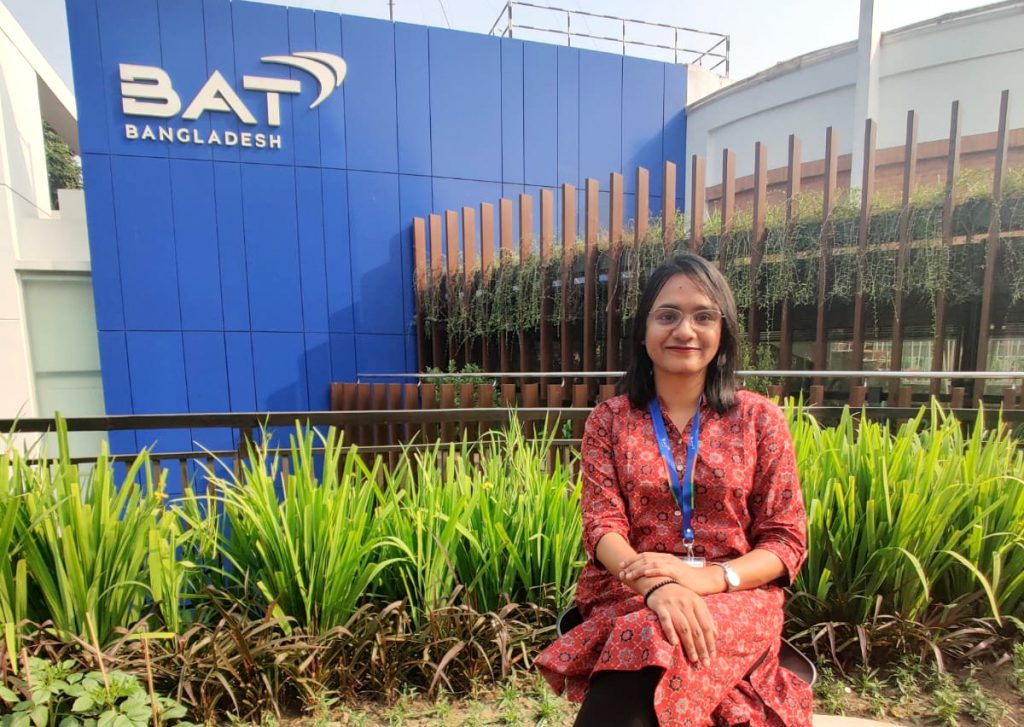
Can you describe a specific project where you effectively managed a diverse team to achieve a common goal?
In the endeavor to combat the detrimental impact of single-use plastic pollution on our environment, I took on the role of project manager, overseeing a diverse and dedicated team of individuals united by a shared mission. Our goal was clear: to significantly reduce single-use plastic consumption in our community and promote sustainable alternatives.
One of the first steps in effective management was to assemble a team with diverse skills and backgrounds. Environmentalists, waste management experts, educators, marketing specialists, and community activists came together to bring a wealth of perspectives to the table. Recognizing that each team member had a unique set of skills and knowledge, I made it a priority to tap into their strengths. Clear communication was the cornerstone of our success. Regular team meetings were scheduled to facilitate open discussions, provide updates on progress, and brainstorm solutions to emerging challenges. This inclusive communication style ensured that every team member felt valued and had a platform to voice their ideas and concerns. To harness the team’s diversity, we implemented an inclusive decision-making process. By encouraging all members to participate in shaping the project’s direction, we could draw on a wide range of perspectives and expertise. This approach not only enriched our strategies but also fostered a sense of ownership and commitment among team members.
Community engagement was a vital aspect of our project. Collaborating with local businesses, schools, and community groups, we aimed to raise awareness about the harmful effects of single-use plastics and promote sustainable alternatives. Our educators designed informative programs and workshops, while our marketing specialists crafted compelling campaigns to rally public support. In parallel, we formed strategic partnerships with environmental organizations, government agencies, and eco-conscious businesses. These collaborations expanded our reach and provided access to valuable resources, helping us to scale our efforts.
Continuous monitoring and evaluation were crucial to ensuring we stayed on course. We established key performance indicators to track our progress and regularly assessed the impact of our initiatives. This data-driven approach allowed us to make informed decisions and adapt our strategies as needed. To maintain team morale and motivation, we celebrated milestones and achievements, no matter how small. These moments of recognition acted as powerful reminders of our collective impact and spurred us to press onward. Our commitment to continuous learning also played a pivotal role. We encouraged team members to stay informed about the latest developments in plastic pollution reduction strategies, ensuring that our efforts remained cutting-edge and effective.
In conclusion, by effectively managing this diverse team and implementing a comprehensive approach, we made significant strides in our mission to beat single-use plastic pollution. Our community became more conscious of its plastic consumption, and sustainable alternatives gained traction. Our success was not just in reducing plastic waste but also in exemplifying the power of teamwork and diverse perspectives when tackling complex environmental challenges.
How have you demonstrated your ability to communicate complex ideas clearly and persuasively in your previous roles?
The easiest way to communicate complex ideas is by taking the Hemmingway approach. Ernest Hemingway was a revolutionary writer and communicator, but he kept his communication style simple and straightforward. In the realm of effective communication, conveying complex ideas to others requires a structured and adaptable approach. In my previous roles, I tried to stand with a solid foundation: ensuring my own understanding of the concept is comprehensive. This foundation knowledge is the bedrock upon which effective communication is built. Moreover, always I follow some key points within my own analysis:
Key Point 1: Self Preparation is the first and most critical step in effective communication
Key Point 2: Active listening and keen observation help pinpoint areas of confusion in your audience.
Key Point 3: Deconstructing the concept into smaller parts enhances its accessibility and comprehensibility.
Key Point 4: Progressive explanation and regular feedback checks facilitate pinpointing sources of confusion and maintaining clarity.
Key Point 5: Willingness to break down concepts further demonstrates the commitment to clarity and understanding.
Key Point 6: Identifying the root of confusion marks a critical juncture in the communication process.
Key Point 7: Customized communication leverages diverse illustrative methods to ensure clarity and resonance.
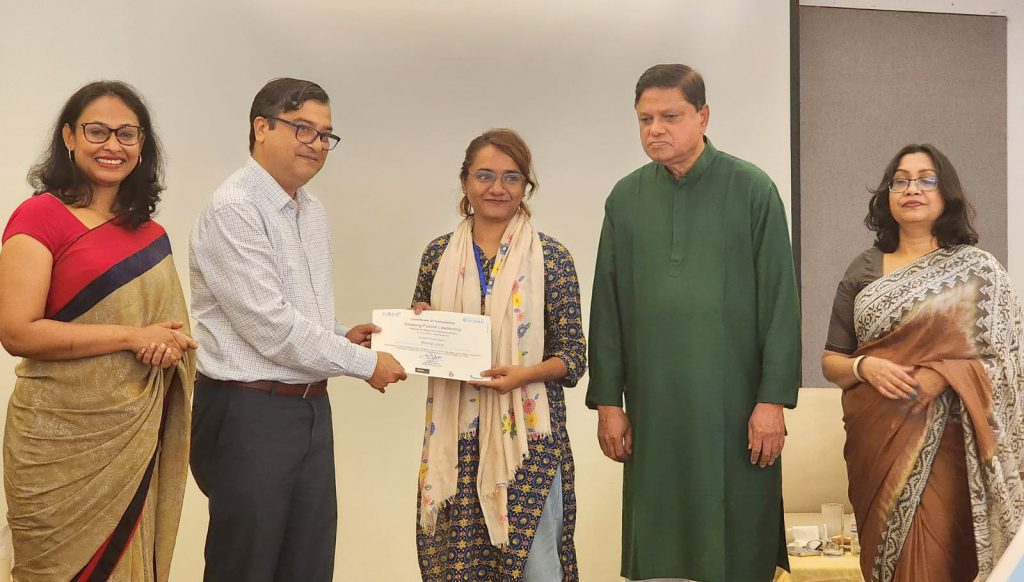
Ms. Nishat, Can you discuss your experience in conducting research, including any notable findings or contributions you made during your academic and volunteering years?
During my graduate studies in environmental science, I initiated a research project aimed at understanding climate change perception levels among local communities and exploring their attitudes and behaviors related to waste management practices. The overarching goal was to inform policy recommendations and community initiatives for sustainable living.
Notable Findings: Through a comprehensive survey and in-depth interviews with community members, we uncovered several notable findings:
- Climate Change Perception: Surprisingly, our research revealed that a significant portion of the community had a limited understanding of climate change. Many respondents viewed it as a distant issue rather than a pressing local concern. This finding emphasized the need for targeted climate education and awareness campaigns.
- Waste Management Attitudes: On the waste management front, we found a strong willingness among community members to engage in recycling and waste reduction. However, logistical challenges, such as limited access to recycling facilities, hindered their efforts. This highlighted the importance of improving waste infrastructure.
- Community Engagement: Our research also uncovered a strong sense of community among respondents. They expressed a desire to collaborate on local initiatives for waste reduction and sustainability, demonstrating a potential for community-led environmental projects.
Working in partnership with local authorities, we championed the expansion of recycling facilities and the adoption of more streamlined waste management methods, leading to incremental enhancements in our community’s waste infrastructure. Additionally, I am honored to have been granted a National Science and Technology Fellowship by the Ministry of Science & Technology in Bangladesh, which was in recognition of my contributions to a solid waste management project. Furthermore, I recently secured a two-week scholarship to conduct research on solid waste management at the University of Texas. These achievements are a testament to my dedication to waste management and environmental sustainability. I am confident that the knowledge and insights I gain from these experiences will make a meaningful contribution to the advancement of waste management practices in our country and play a pivotal role in its success.
How do you stay updated on industry trends and developments related to environmental science and climate change?
Yes! That’s an impressive question as well. I’m genuinely passionate about staying at the forefront of developments in sustainability and environmental science. For me, it all starts with my commitment to reading respected environmental science journals and publications regularly. This keeps me in the loop regarding the latest research findings, emerging trends, and overall developments in these fields.
But it doesn’t stop there. I believe in the power of real-world interactions and learning from experts. That’s why I make it a point to attend conferences, seminars, and workshops that revolve around environmental science and climate change. These events not only provide valuable knowledge but also give me the chance to network with seasoned professionals. To further my career in sustainability, I’ve actively sought out national and international training opportunities. I’ve been fortunate to participate in programs offered by organizations like Swiss Contact, Water Aid, the University of Oklahoma, and the South-Central Climate Adaptation Center. These experiences have been instrumental in deepening my understanding of climate adaptation techniques.
In today’s digital age, staying connected is crucial. I actively engage with various climate activism groups and individuals on LinkedIn. This digital community keeps me updated on ongoing initiatives, upcoming environmental events and provides a platform for insightful webinars and discussions. On top of that, I leverage my social media platforms to share my passion. Through content creation, including videos and blog posts, I aim to contribute meaningfully to the ongoing conversations surrounding climate and sustainability. This is not just about personal branding; it’s about joining the chorus of voices calling for environmental action. My approach is multifaceted, and it’s driven by my unwavering commitment to making a positive impact in the vital domains of climate and sustainability. I’m dedicated to continuous learning, networking, and actively participating in global efforts to address environmental challenges.
Above all, In the constantly evolving fields of environmental science and climate change, keeping pace with the latest trends and developments is vital for professionals and enthusiasts alike. Several effective strategies can help individuals remain well-informed and engaged in these dynamic areas.
Firstly, online resources play a pivotal role. Websites, blogs, and forums dedicated to environmental science and climate change serve as information hubs. They provide a plethora of resources, including articles, research findings, and insights from experts. Regularly visiting these platforms can keep individuals up-to-date with current trends.
Secondly, social media engagement is instrumental. Following relevant experts, organizations, and discussions on platforms like Twitter, LinkedIn, and Facebook can provide real-time updates on industry news, emerging research, and significant events. These platforms also offer opportunities to engage in meaningful dialogues with thought leaders and peers.
Continuing education remains a fundamental strategy. Enrolling in courses, workshops, and webinars related to environmental science and climate change is an effective way to access the latest research findings and best practices. These educational opportunities are often offered by academic institutions, environmental organizations, and online platforms, enabling participants to learn from instructors and interact with fellow learners.
Professional networking is another crucial avenue. Building and nurturing a robust network within the industry facilitates the exchange of information, insights, and resources. Whether through networking events, conferences, or online communities dedicated to environmental topics, connecting with peers, mentors, and experts fosters a sense of community and keeps individuals attuned to the pulse of the industry.
Finally, collaboration amplifies the learning experience. Working alongside colleagues, mentors, and experts in the field opens doors to shared insights and knowledge transfer. Collaborations may involve joint research projects, co-authored publications, or active participation in environmental initiatives. Such partnerships offer exposure to diverse perspectives and ensure that individuals remain well-informed about current industry trends and developments.
Incorporating these strategies into one’s professional journey enhances not only knowledge but also the ability to make meaningful contributions to the ever-evolving realms of environmental science and climate change. Staying informed and engaged is essential for those dedicated to addressing the pressing environmental challenges of our time.
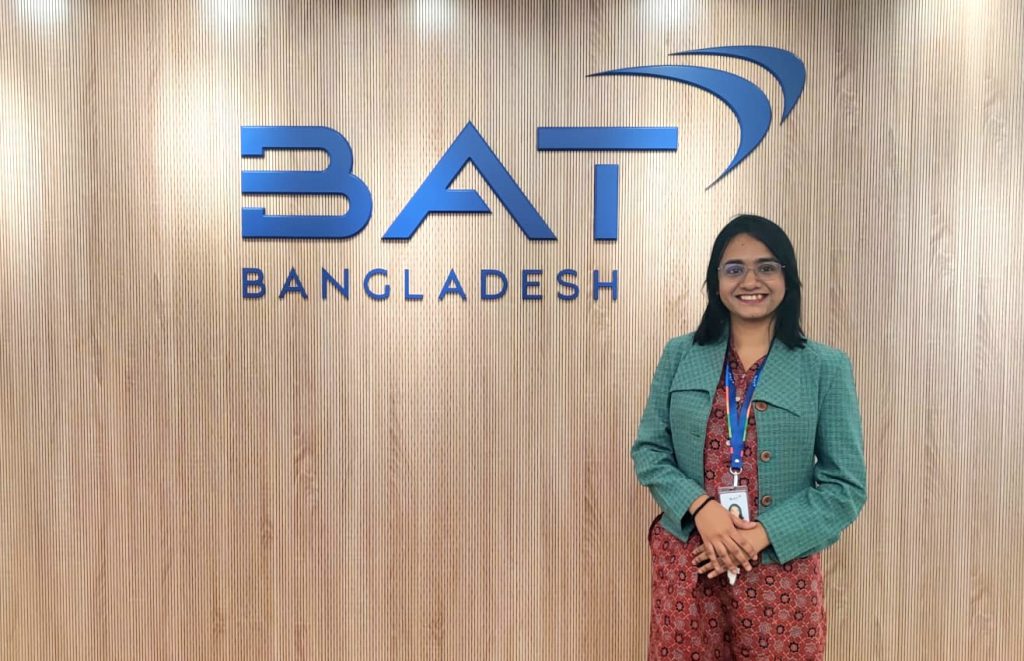
Can you discuss your accomplishments and contributions during your time as a News and publication Officer and your proficiency in media-related tasks?
During my tenure as a News and publication Officer, I had the privilege of being at the forefront of managing and sharing information through diverse media channels. This role entailed a range of tasks and responsibilities that allowed me to make significant contributions to the organization.
One of the central elements of my role was content creation. I took pride in crafting compelling and informative content that spanned various formats, including articles, reports, news stories, videos, and eye-catching infographics. This content served as a vital means to engage our audience while keeping them well-informed. Building and nurturing relationships with media professionals was another crucial aspect of my role. I actively reached out to journalists, bloggers, and other media experts, effectively pitching stories and coordinating interviews. Additionally, I ensured that media inquiries were promptly addressed, fostering positive interactions with the press.
Publication management was yet another area where my contributions made a difference. I oversaw the entire process, from conceptualizing content to meticulously designing layouts and ensuring timely distribution. This ensured that our newsletters, magazines, and digital publications reached our target audience seamlessly. In the realm of event promotion, I took on the responsibility of crafting compelling narratives around our various events, including conferences and seminars. This involved creating impactful press releases and launching engaging social media campaigns, as well as developing other promotional materials.
During my tenure, I also proved my mettle in crisis communication. I designed and executed strategies that effectively addressed and managed instances of negative publicity or unforeseen issues. This proactive approach played a crucial role in safeguarding and enhancing our brand reputation. Data-driven decision-making was a hallmark of my approach. I diligently tracked and analyzed the performance of media campaigns and publications, harnessing insights to fine-tune our strategies for more impactful communication.
Last but not least, I recognized the power of audience engagement. I actively interacted with our audience across diverse media platforms, with a special focus on social media. This not only helped build a strong sense of community but also bolstered brand loyalty.
Throughout my tenure as a News & Publication Officer, my contributions were aligned with the organization’s overarching goals. These accomplishments included securing favorable media coverage, boosting engagement with our target audience, enhancing our brand’s reputation, and establishing a robust online presence. In essence, success in media-related tasks hinges on robust communication skills, a deep understanding of media trends and technologies, and an innate ability to adapt to the ever-evolving media landscape. As a News and publication Officer, I embraced the role’s significance in shaping our organization’s public image and ensuring that our communication was not only transparent but also impactful in reaching our audiences and stakeholders.
Ms. Nishat Jarin, please say something to the readers!
Dear readers,
I want to extend my heartfelt gratitude for taking the time and interest to join me on this incredible professional journey. It’s truly fulfilling to know that the experiences and insights I’ve shared may inspire or offer valuable insights to others
In the journey of life, there are some timeless principles that guide us towards a fulfilling and meaningful existence. First and foremost, staying focused and remaining true to your authentic self is paramount. It’s the compass that keeps you on course as you navigate the twists and turns of life’s path.
Dreaming big is not just an aspiration; it’s the fuel that propels us forward. Embrace the idea that failure is not a dead end but a stepping stone on your journey. True failure only occurs when you cease to try, so never stop striving for your dreams.
However, while ambition and work are essential, they should not overshadow the importance of relationships. Prioritize and cherish your connections with family, friends, and the work family you build outside the office. These bonds enrich your life and provide a solid foundation of support and love.
Finding work that you are genuinely passionate about is a game-changer. When your profession aligns with your interests and values, it doesn’t feel like a daily grind but rather a fulfilling pursuit of your purpose.
Long-term thinking is another guiding principle. Consider the future impact of your choices and actions. This perspective helps you make decisions that resonate with your overarching goals and values.
Above all, maintain an optimistic outlook. Instead of dwelling on potential setbacks or rejections, shift your focus to the myriad of opportunities that abound. An optimistic mindset can transform your approach to life and open doors you never imagined. Anyway, it’s been an incredible honor to have this opportunity to connect with you and offer a glimpse into my professional world through the InCAP platform.
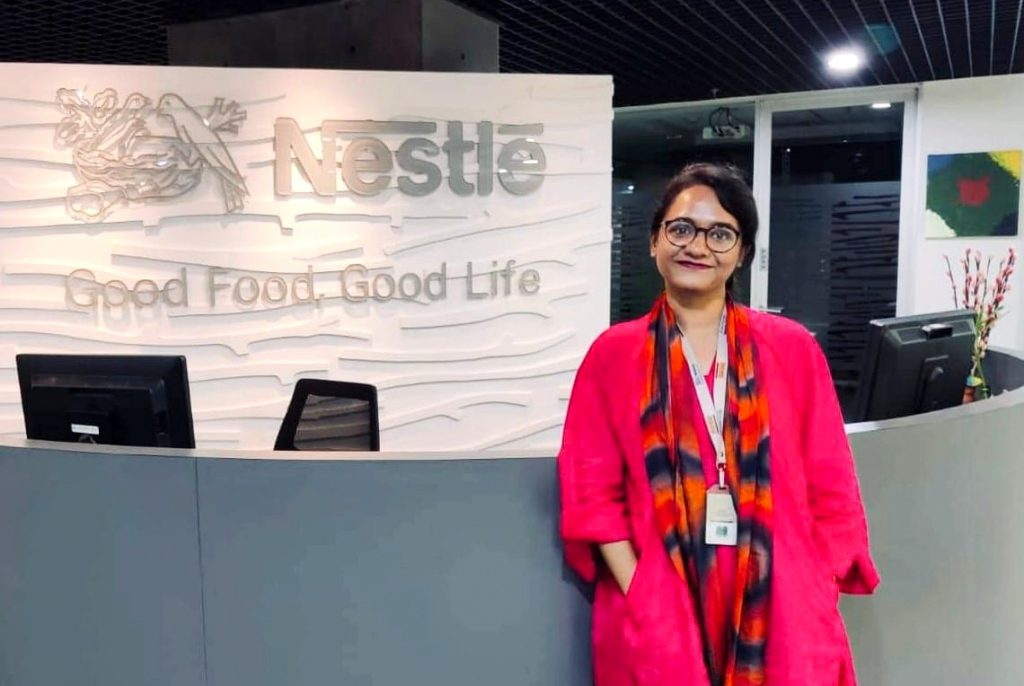
Quick Chat With Nishat Jarin
The most outstanding achievement of your life as of now:
Living ethically, advancing professionally, and positively impacting others is a noble and inspiring life path and obviously progressive with the career without oiling others.
The greatest philosopher in your view:
Prophet Muhammad (Sm).
Your Icon:
My parents.
Name the most influential books you have read
The Holy Quran, The Alchemist- Paulo Coelho, Mind Management, not Time Management- David Kadavy, Ikigai- The Japanese Secret to a Long and Happy Life.
Your greatest fear:
Leaving this world with dreams still unfulfilled reminds us that life is short, and it’s vital to chase our ambitions with determination and enthusiasm.
Best piece of advice you’ve received:
The most valuable advice I’ve ever gotten is to welcome challenges as chances to learn and improve because they shape our character and often lead to remarkable accomplishments.
You in only three words:
Adaptable, Resilient and Unbeatable.
Skill Set
- Hard Skill: Presentation skills, Negotiation skill, Time Management, Responsibility and Efficiency
- Soft Skill: Public speaking & communication, Problem solving, Teamwork, Leadership, Agile and Quick learner.
Prayer for The Human Civilization:
Grant us the strength to draw lessons from the past, the courage to navigate the present, and the foresight to shape a future marked by justice, unity, and the pursuit of higher truths.
The InCAP: Thank you, Ms. Nishat Jarin! It’s a glittering conversation with you!
Ms. Nishat Jarin: My pleasure! Wish you all the best! Thank you.
To read more about Professional’s stories, Please Click Here!



